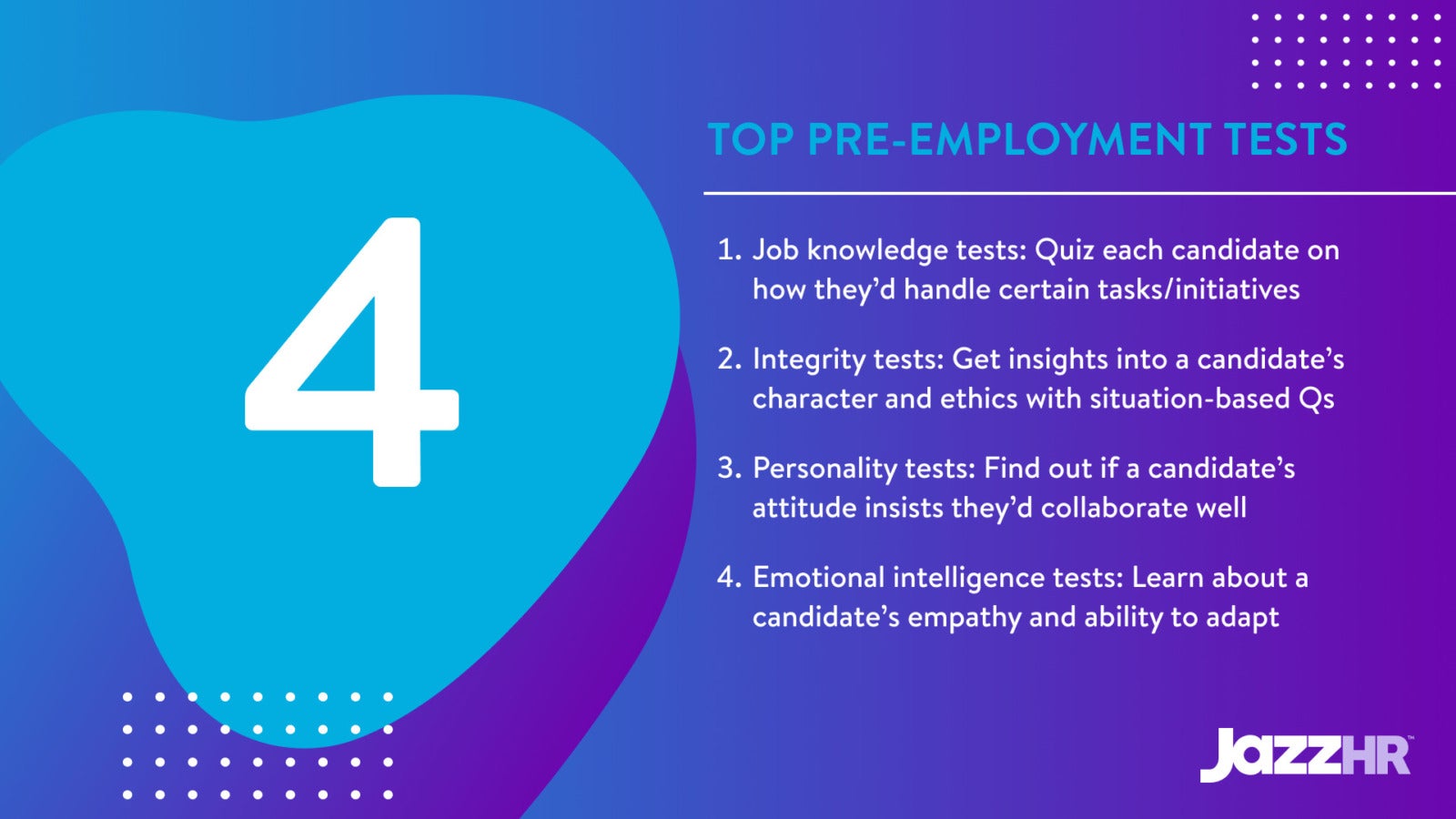Guest Blog by Owen Jones
If you have an open position at your company, you’ll want to hire the best person for the job. Interviews are an important part of determining whether a candidate will be a good fit, but they can only do so much.
If you rely on interviewing alone, you increase your chances of making a poor hire. According to Career Builder, bad hires cost companies a whopping $14,900 each.
- This is why pre-employment tests are so important. With these assessments, you can properly gauge candidates’ skills and check that they are aligned with what you’re looking for.
Pre-employment tests also reduce unconscious bias and the chance that you’ll base your decisions on your own subjective perceptions. Instead, they provide objective results on which to make a choice.
The pros of pre-employment tests
There are numerous benefits to pre-employment tests. Aside from helping you make an objective decision, they also have a host of other advantages. Two reasons to conduct pre-employment tests today are they:
- 1) Shorten the hiring process: If a candidate doesn’t do well in your pre-employment test, you can take that person off your list immediately and move on to other candidates.
- 2) Test an applicant’s personality and attitude: Pre-employment tests aren’t only for assessing particular role-based skills. You can also use them to assess personality and attitude, helping you to determine whether the candidate will fit well with your company’s culture.
In other words, pre-employment tests complement traditional interviews and allow you to make a more informed choice about who should be extended offers and hired for a role that is complex in nature.

4 types of pre-employment tests
Now that you know the benefits you can get from pre-employment tests, let’s look at four effective types of assessments you can use when interviewing top talent for job openings in the future.
1) Job knowledge tests
Job knowledge tests allow candidates to prove they are capable of the tasks a role requires. For a job on your Finance team, you could assess a person’s ability to prepare balance sheets and budget reports.
These tests should be timed. Depending on the task, anything from 15 to 45 minutes is a good timeframe for this kind of pre-employment test. Use an employee time clock software to time every candidate’s test.
2) Integrity tests
Integrity tests assess a candidate’s ethics and character. They can be particularly useful for jobs that might involve negotiating difficult situations or ethical dilemmas.
- The questions in integrity tests are usually situation-based.
Examples might include asking candidates what they would do if a manager assigned them a task that violated company policy, or how they would respond if a client asked them to do something illegal.
You can also ask other less situation-based questions, such as asking about their core values and best personal qualities. The idea is to see whether or not your candidate possesses the principles and character you need the post-holder to have.
3) Personality tests
Personality tests allow you to determine whether a candidate has the attitude that will enable them to do well in your company. Different personality types do well in different roles.
While you should try not to have too many preconceptions about personality types, you probably have a good idea of the attributes the post-holder will need to excel in their position.
Some examples of these types of tests are the Myers-Briggs Type Indicator, the Caliper Profile, and the DISC assessment. Choose the one that makes the most sense for your company and the role.
The candidate’s results will help predict their workplace behavior if they’re hired.
4) Emotional intelligence tests
These are also pre-employment tests that assess how a candidate builds relationships with colleagues and customers and resolves conflict on the job. They allow you to test the following attributes:
- Teamwork: Is the candidate able to work well with other people?
- Empathy: Does the candidate understand and care for other people’s feelings?
- Adaptability: Can the candidate respond effectively to a range of different situations?
Candidates who score highly in emotional intelligence tests are more likely to maintain strong relationships with coworkers, be more collaborative, and cause less conflict. Emotional intelligence tests reduce the likelihood you’ll have to deal with an employee complaint against a candidate if you hire them.
Administering pre-employment tests
Pre-employment tests should be part of your talent acquisition strategy if you want to make sure you hire the best person for each role. They give you insights that an interview alone simply cannot.
- Of course, not all test types will be appropriate for all roles. Only use ones that will truly help you assess the skills and competencies that are necessary for the job you’re trying to fill.
If you complement pre-employment tests with a robust resume screening and interview process (and, really, a well-run recruitment cycle), you’ll get a more accurate and fully rounded picture of each candidate.
From there, you can more capably decide who will excel at your company and who likely won’t.
Screen smarter and interview more efficiently with our powerful recruiting software for small businesses. Schedule a JazzHR demo today to learn all about our award-winning applicant tracking system.






